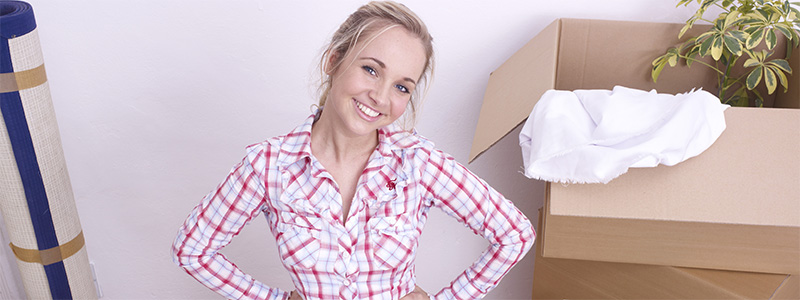Whether you are preparing your home for sale or just trying to gain a little sanity it’s great to declutter your home. From saving space to sparing time and reducing stress, decluttering can make every part of your day a little easier. But going into a decluttering session once every few months isn’t enough if stuff starts piling up again overnight. To really fight clutter, you need to prevent it building up in the first place. From adopting better cleaning habits to tackling major clutter sources, here are seven tips to help you prevent clutter and enjoy a junk-free life.

Don’t Delay Clutter Decisions
At the core, most clutter is the result of delayed decisions. It’s easy to toss aside extraneous items — like junk mail and unwanted gifts — and tell yourself you’ll deal with them later. But usually things just end up lying around and gradually turn into piles of clutter that drive you crazy. Force yourself to avoid procrastination and deal with dubious items immediately. Being decisive and tackling potential clutter head-on is one of your best defenses against a messy household.
Schedule Cleaning Daily
It’s easy to put off cleaning. But if you do, clutter builds up and bogs you down, making life more complicated than it should be. Realize that cleaning and keeping clutter under control is vital, because it helps you get through everyday life easier, spend more time with people you love, and do more of the things you like. Don’t think of cleaning and getting rid of clutter as something you should do, but something you must do. So treat it as an everyday necessity and work it into your daily schedule, no matter what. It doesn’t have to be very long though — just 15 to 20 minutes each day can make a difference.
Clean up When You’re Done
Leftover items of everyday activities clutter up a clean house fast. That’s why it’s important to clean and put things away after everything you do, whether it’s cooking or doing paperwork. Make cleanup part of the process for every task and do it vigorously. It’s a healthy habit that makes for a cleaner house and a more organized life.
Cut the Binge Shopping
Impulsively buying things you don’t need wastes space and money. When you’re inclined to buy something, write it down and wait at least a few weeks. Only make the purchase if you still think it’s worthwhile after the waiting period. Often, after the waiting period, you’ll realize you didn’t want or need the item; if you still want to make the purchase, you’ll be more confident spending the money is justified.
Find Routine Ways of Getting Rid of Stuff
Without a destination to take stuff, decluttering becomes an intimidating challenge. To keep clutter gone, you need an arsenal of easily accessible outlets where you can routinely donate and sell things. Make a game plan of where to take what ahead of time, so when you decide to get rid of something, you’ll already know where to take it. Find nearby thrift stores and figure out which ones you like best, preferably located close to your daily commute so you can take things before or after work. Keep a box for things to donate, and whenever it’s full, put it in the car and drop it off the next time you leave. Set up eBay and Craigslist accounts for things you can sell, and look for consignment shops if you can’t have garage sales. Also hunt out recycling centers for plastic, old electronics and paperwork (after it’s been shredded, of course). Find the options that work best for you, and use them frequently.
Go Paperless
If you’re bogged down by clutter, a lot of it is probably paperwork. Opt for online options for banking, paying bills, and taxes to stop pesky paperwork dead in its tracks. Going paperless alleviates short-term clutter, and saves you the slow agony of keeping boxes full of old tax records and bills stuffed around the house. It’s better for the environment, too. And while many people still vouch for the virtue of physical magazines and books, choosing digital magazines and ebooks lets you have a massive library without a single volume taking up space.
Corral Your Gift Exchanges
Exchanging gifts is great, but it’s also a major source of unused possessions that consume space. If you can look around and see multiple unused gifts cluttering up your home, it’s probably time to reduce your gift influx. For exchanges with co-workers, extended family, or friends during the holidays, suggest just exchanging cards in the future. For exchanging gifts with close family and friends, ask everyone to make and share detailed wish lists, so everyone can get things they’ll actually use. If you have kids, gently encourage people to give them single items they’ll appreciate over time or experience-based gifts like zoo memberships for birthdays, instead of the typical barrage of toys that get used once and forgotten.
